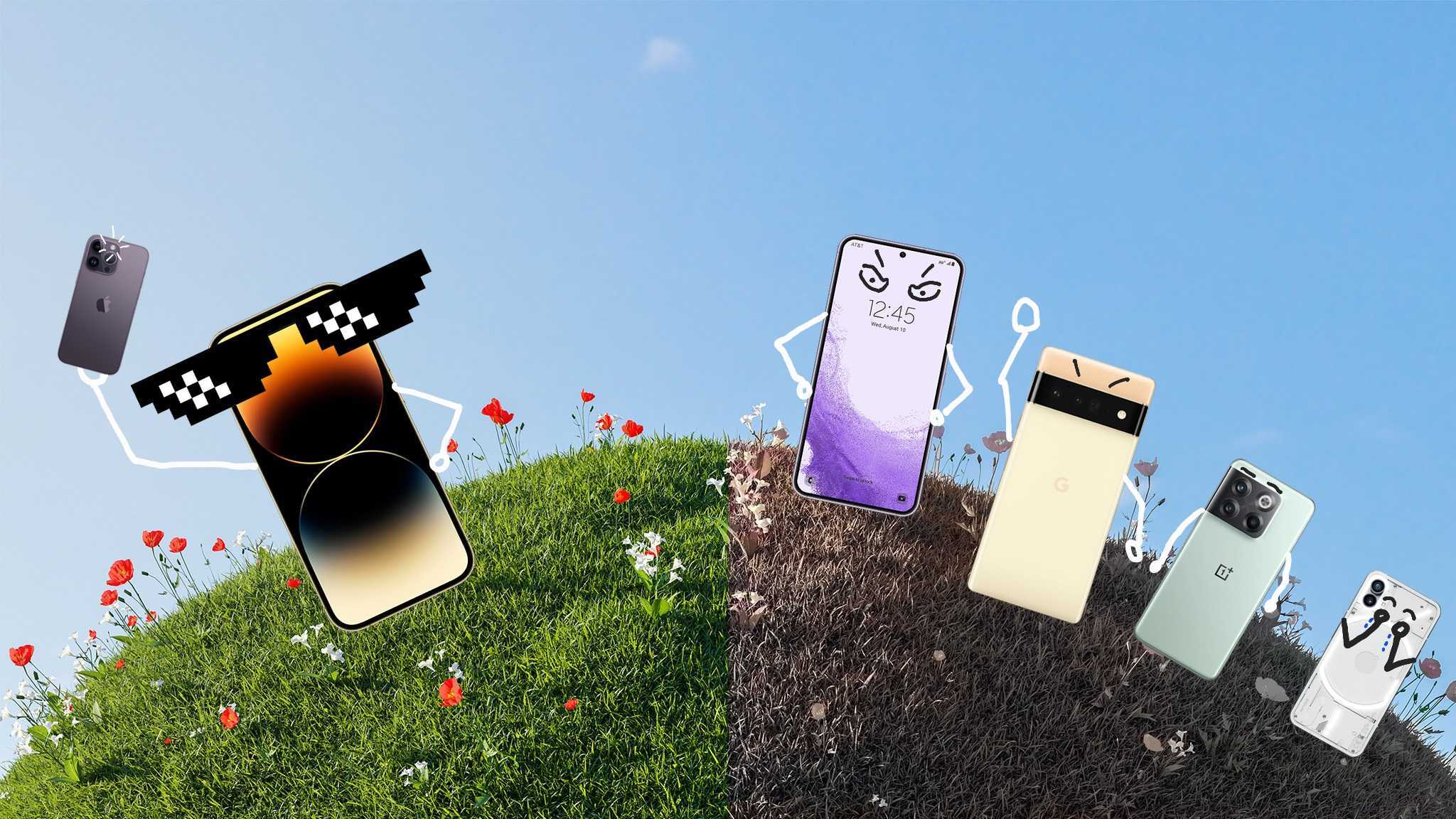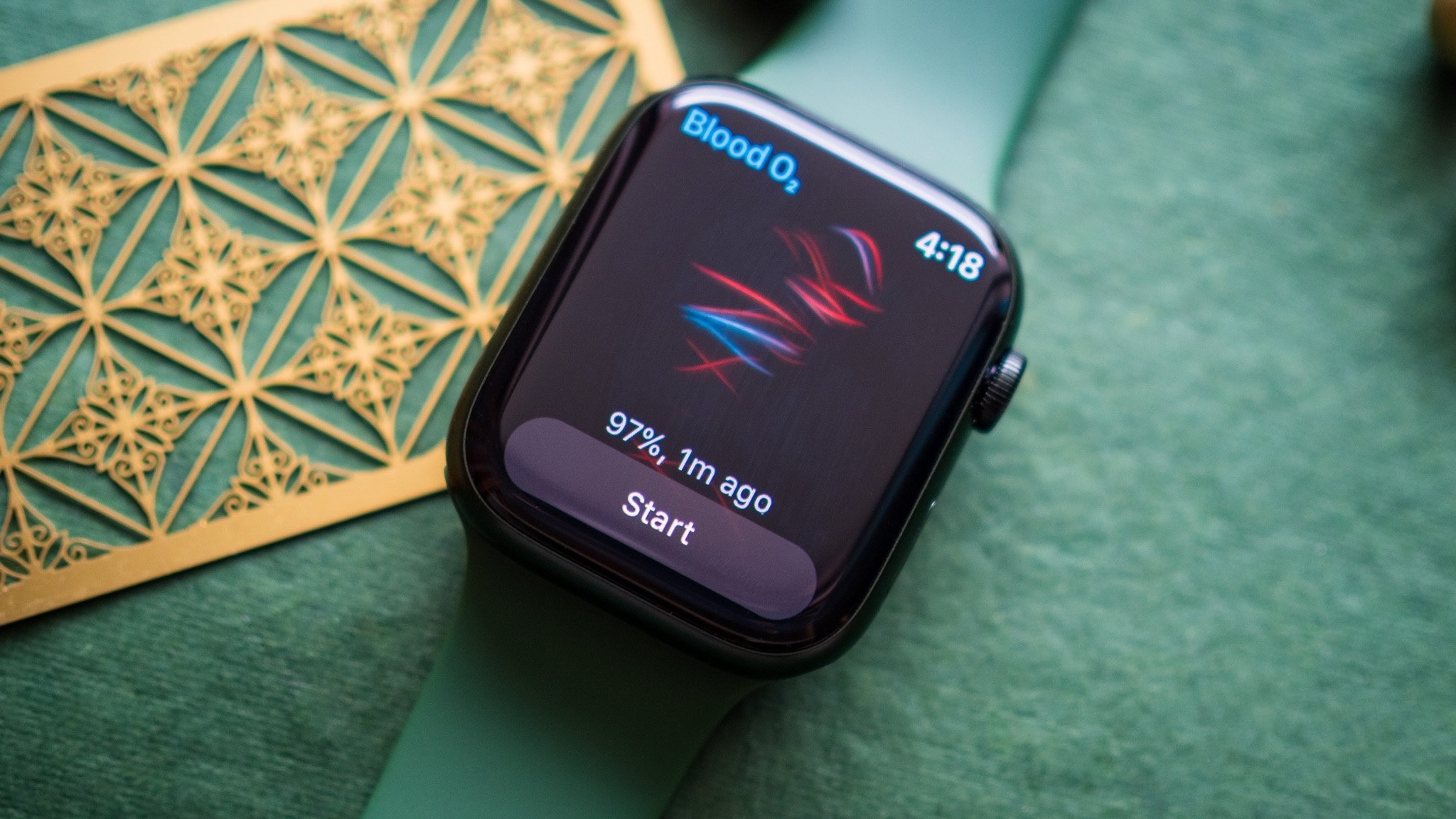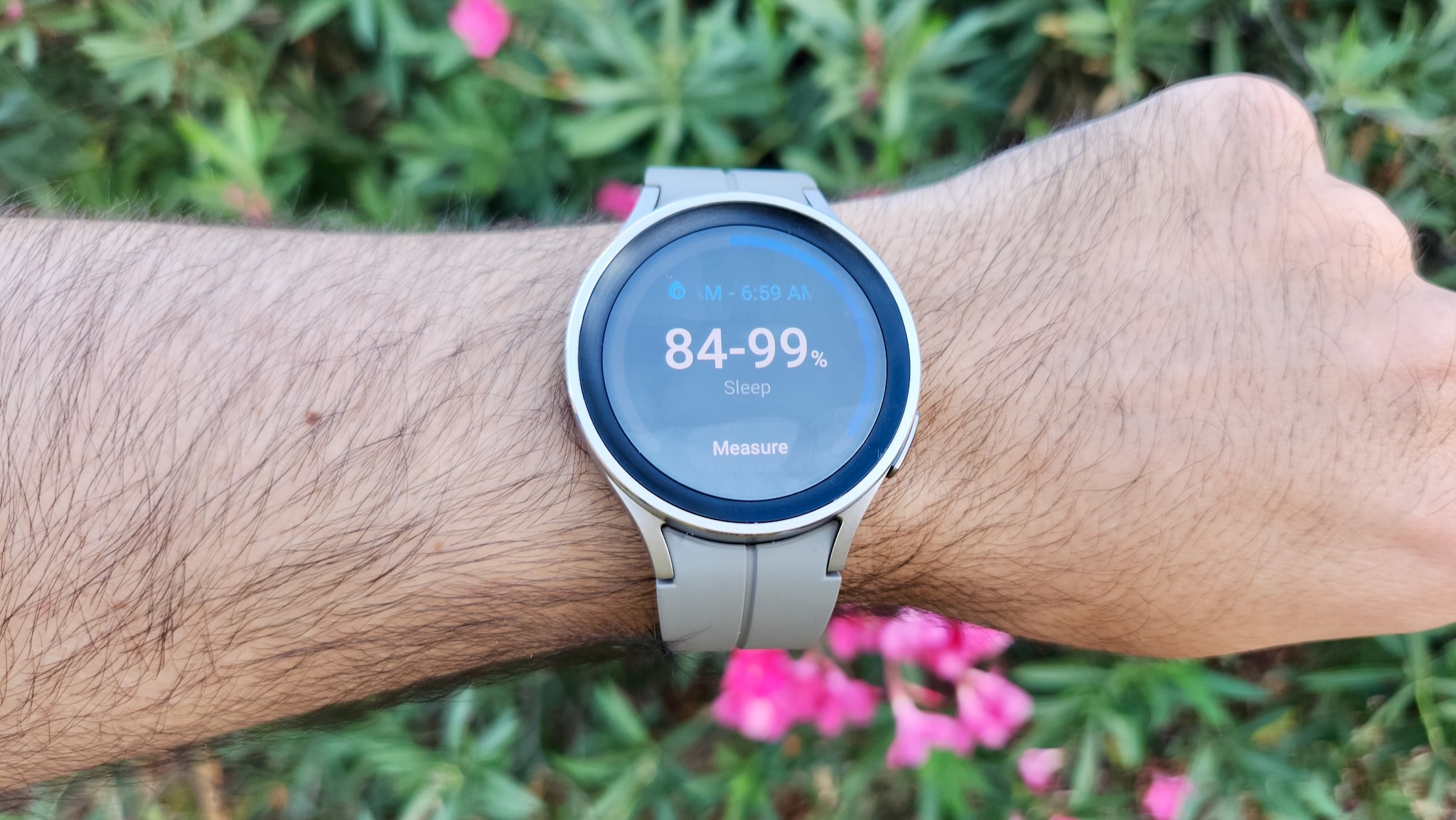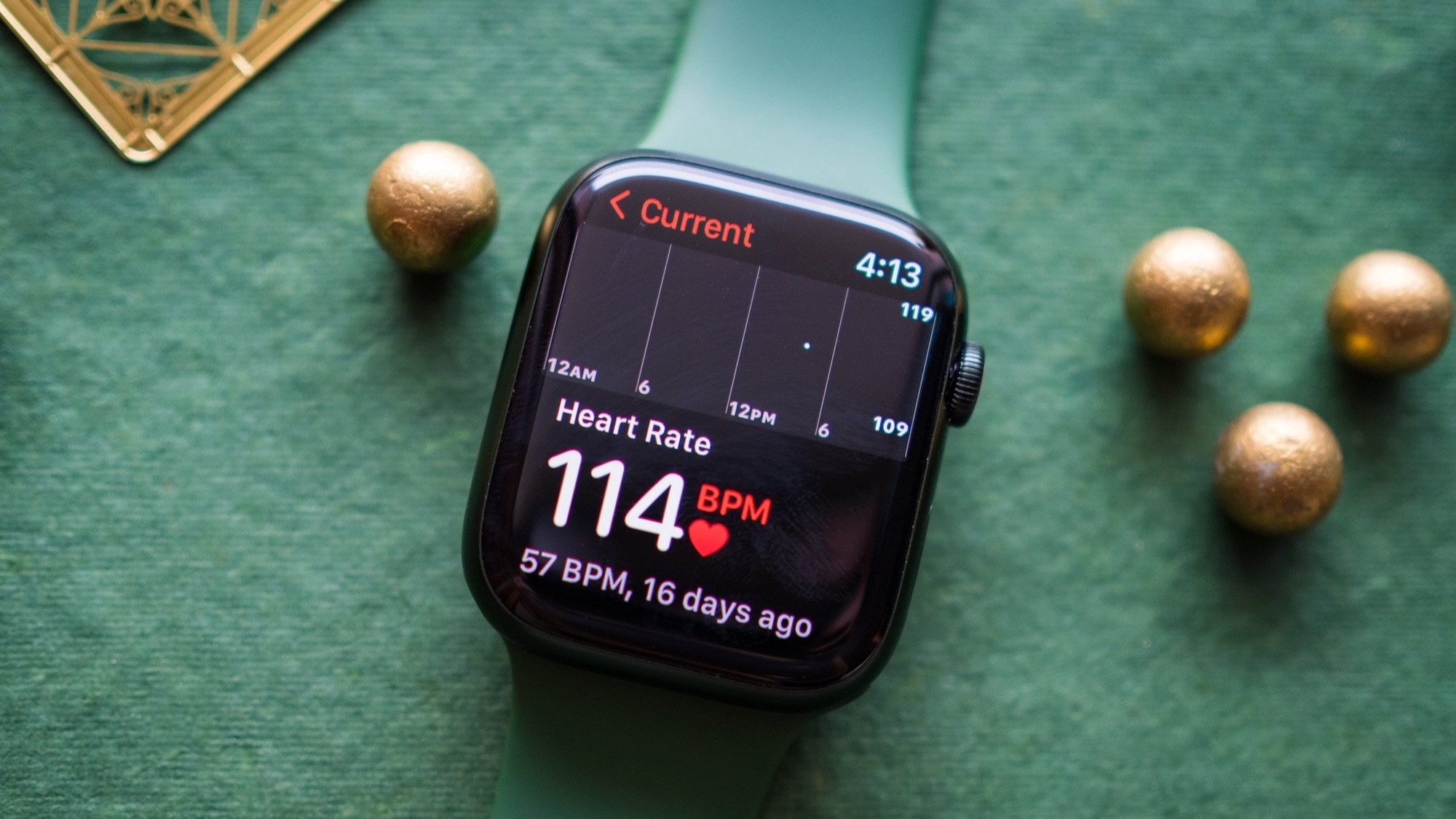Apple doesn't try to compete with Android OEMs, and that's why it's far more successful
The Watch Series 8 might be doing things Android smartwatches have already done, but Apple tries to do it better.

Samsung likely has a valid reason for not activating its temperature sensor in the Galaxy Watch 5 yet. But some experts suggest that Apple has come out on top with the new sensors in its Watch 8, because it’s no longer about who introduces something first — but rather who does it right that succeeds.
Apple announced the Watch Series 8 during its annual fall event, and the new device includes two new temperature sensors - one on the back and another under the display. The two sensors will isolate your body temperature from the outside environment and will specifically help with ovulation tracking.
While Apple successfully launched its device with temperature sensors, many Android enthusiasts have criticized Samsung for announcing temperature sensors in the Galaxy Watch 5 even though it has yet to turn it on.
Carmi Levy, a technology expert, says that Samsung likely has a good reason for not activating the sensors, but from a consumer perspective, “it’s yet another example of an Android vendor introducing technologies that aren’t as fully baked as they could be.”
“If Samsung can be accused of making any mistake, it would be its failure to devote enough engineering resources to finish the job, so to speak, by crafting end-to-end experiences that allow new hardware like temperature sensors to be fully functional in the hands of everyday consumers. Instead, the new hardware gathers dust. Even if Samsung technically beat Apple by introducing a temperature sensor before Apple, it ultimately loses the war. Bragging rights over who was first to introduce which sensor or feature is worth far less than they once were,” he says.
Anshel Sag, a senior analyst at Moor Insights & Strategy, says that Samsung knows exactly what it is doing. He adds that Samsung has “gotten to a point where [its sensors] become accurate enough, small enough, and cheap enough that they aren’t a concern if they don’t get utilized right away or approved for their intended use until a few years later.”
It’s all about the future of health

While Apple didn’t need to get FDA approval to use its temperature sensor for ovulation tracking, Levy says that these companies are going to be using sensors for more things related to tracking your health in the future.
Be an expert in 5 minutes
Get the latest news from Android Central, your trusted companion in the world of Android
“Regulatory approval takes time - and is often based on lawmakers’ confidence in the providers’ ability to demonstrate expertise in the particular area. Apple’s strategy allows it to gradually build trust within regulatory circles in its technologies, all while it just as gradually shifts consumer sentiment toward a service,” he says.
Sag says that more sensors mean more applications, which eventually improves the accuracy of measurements. It’s not just about ovulation tracking, but eventually detecting when someone has a fever or measuring actual calorie burn during a workout to give you more precise data.
It’s not about who does it first, it’s about who does it right

By now, one can ask: how has Apple gotten away with introducing a feature like temperature sensors to track ovulation and making it sound like it’s the first feature of its kind on a smartwatch? And it’s not the first time Apple has made such a misleading claim.
Levy says it doesn’t matter that Apple does this because it’s not playing a feature-comparison game and that timing around when it introduces something is no longer relevant to the company.
“Competitors who insist on doing side-by-side feature/value comparisons against the iPhone, Apple Watch, or any other Apple product are fighting a fight that wasn’t ever winnable,” he says.
And in this case, Apple is rarely the first to introduce a particular feature to the market, Levy says, adding that even if Apple is introducing something that Android phones already have, “consumers simply don’t care.”
“Apple’s value proposition has nothing to do with having the coolest new features before everyone else. Rather, it differentiates itself by the way it integrates these features into an overall end-user experience. Being the first on your block to be able to unlock your phone with your face means little if the sensor is unreliable and if the software that power it is riddled with glitches. Apple introduced Face ID years after equivalent Android flagship phones had the feature, but by the time it showed up on iPhones, all of the bugs had been worked out and it worked far more reliably,” he says.
But let’s not act as if Samsung, which makes some of the best smartwatches, hasn’t done anything right. Neil Shah, vice president of research at Counterpoint Research, says that it’s about timing and seeing when there’s demand from users.
“I believe it's all about timing and seeing when your technology, algorithms, and feature demand from the user base all come together to commercialize a particular feature. For example, Samsung is quite ahead when it comes to BMI and deployed it beautifully and will learn more as more users use it and can upgrade its algorithm,” he says.
Apple’s focus is simply different from Android phone and watch makers

Shah notes that while Android phone makers are trying to compete with Apple, Apple’s focus has been more on the “experience.”
“[It is about] how tightly the hardware and software work to provide best-in-class integrated mobile experience,” he says. “This has also gone beyond with respect to consistent connected experience in terms of features and services across its devices - watches, iPads, Macs, HomePods, AirPods, and iPhones.”
And it’s for this very reason that Apple can get away with ignoring market trends, he says.
It’s because the company has significant control over its user base in terms of “ecosystem stickiness from owning multiple Apple devices and services.”
“The switching costs and inconveniences are not worth it,” he says.
Levy agrees, adding that Apple plays its own game based on rules that it gets to define.
“While it can’t afford to completely ignore market trends - and particularly the ever-evolving needs of its customers and prospective customers - the current competitive advantage tilts heavily toward Apple because it sells integrated ecosystems and aspirational experiences to a far greater degree than competitors stuck selling individual devices, much as they always have,” he says.
But, that being said, Apple can’t be complacent, Sag says, adding it needs to always be careful to not ignore the market for too long.
“If it ignores them for too long, you get a repeat of what happened with the Galaxy S3 where Apple was slow to pick up 4G and 'phablets'...Apple lost a lot of share to Samsung and Android in that generation, and we quickly saw Apple respond with larger screens and 4G,” he says.
There’s something else to be said about how Samsung and Apple are both behind other wearable devices in the space. The Garmins, Coros’, and Fitbits of the world have had temperature sensors on their own smartwatches for the past few years. Instead of Samsung and Apple leading the charge in the tech space, they are, actually, playing catch up.

Shruti Shekar is Android Central's Editor-in-Chief. She was born in India, brought up in Singapore, but now lives in Toronto. She started her journalism career as a political reporter in Ottawa, Canada's capital, and then made her foray into tech journalism at MobileSyrup and most recently at Yahoo Finance Canada. When work isn't on her mind, she loves working out, reading, watching the Raptors, and planning what she's going to eat the next day.
